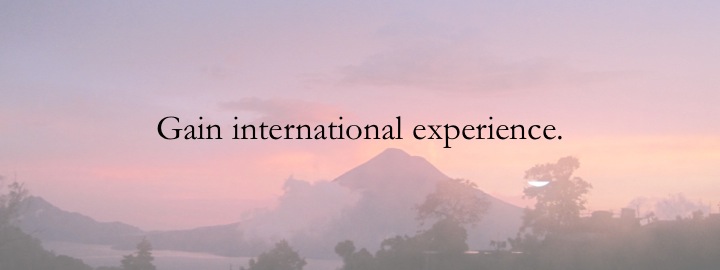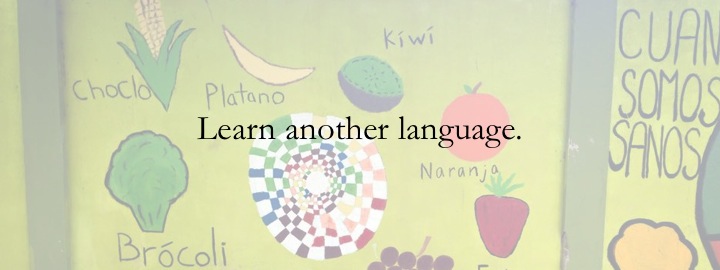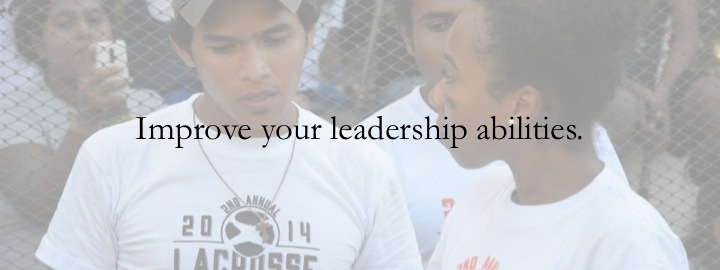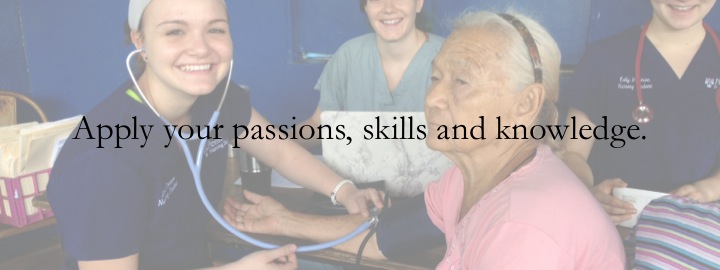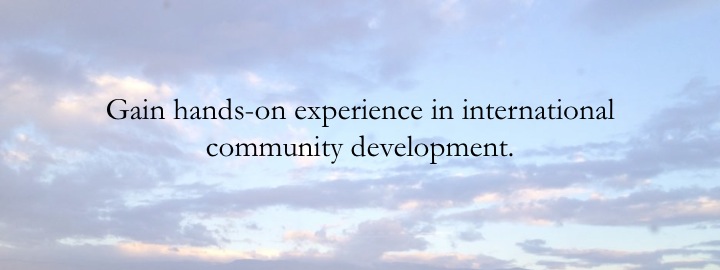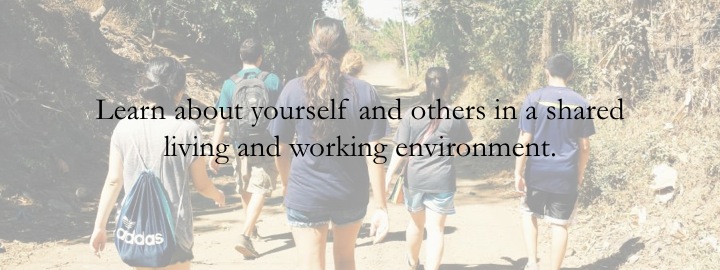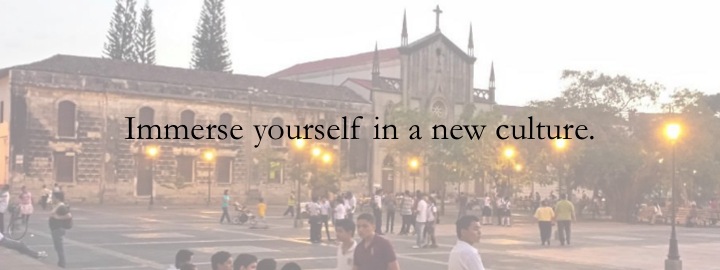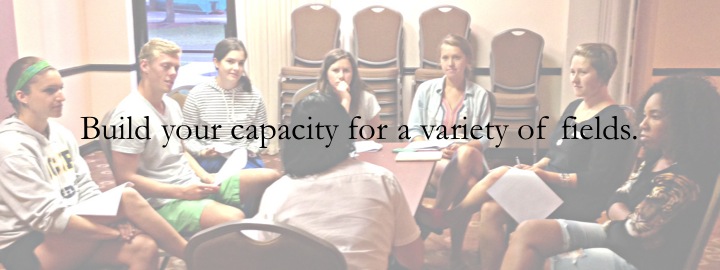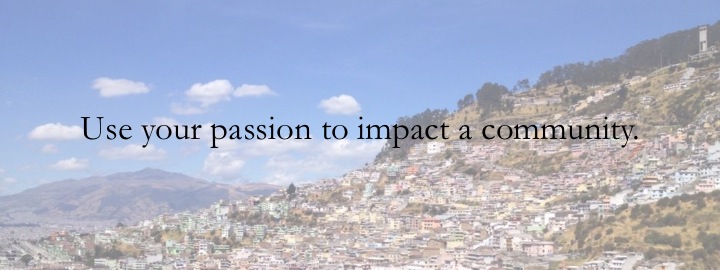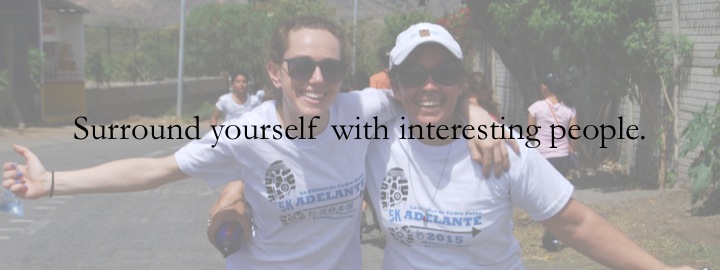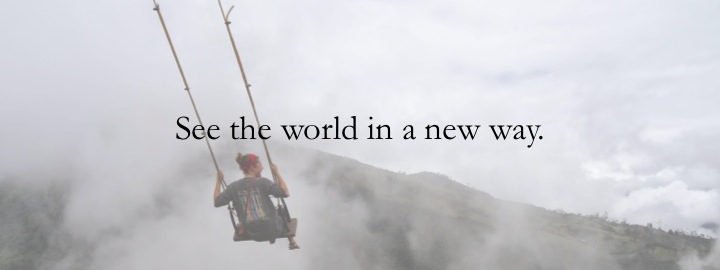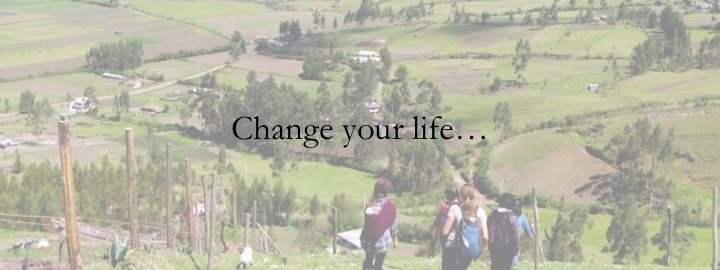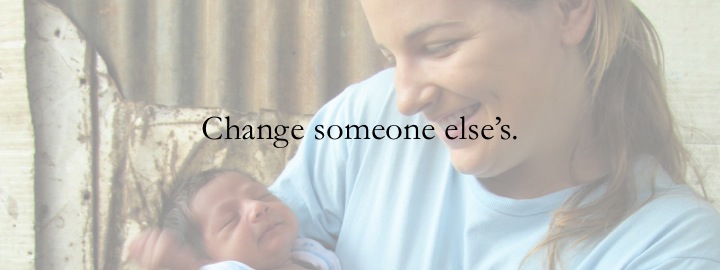By: Kelly Teshima-McCormick, 13-month Ecuador Program Director, 2018-2019
The task of raising money can be daunting. Throw in a lack of experience and the goal of $9,100 and it can feel impossible. But with the right mindset, determination and a little creativity, attacking this task can be a little easier than you might expect.
I am by no means an expert or even a “good” fundraiser, but sharing my experience thus far with raising money for myself and for Manna Project might help those who are struggling with where to even start. Please keep in mind that the following steps, challenges, successes and suggestions are all from my personal experience with fundraising as a newbie.
Step 1
First, I created a fundraising page using the platform Mightycause, as suggested by Manna Project because it is the platform that Manna Project itself uses. Plus, by linking my page with that of Manna Project’s, I was able to show and tell potential donors that their money would be directed towards Manna Project, versus to a personal account of mine.
Step 2
I then shared my fundraising page with friends and family via email, text, phone calls, and Facebook. I chose not to share in a post to my Instagram account because that is not how I use that form of social media (although I did utilize the “story” option for another fundraiser).
Challenge #1- At first, I received positive support from friends and family, but didn’t see much of that support in the form of a donation. How could I turn friends’ “likes” and comments into dollars and cents on my fundraising page? I understand that many of my friends are just getting into their careers or are figuring it out, so they don’t have a lot of extra cash lying around. Some approaches included asking friends to share my posts with their network on Facebook, granting a “Tokyo experience” for each donation over $25 and reminding friends that literally any dollar amount makes a difference. (At the time, I was living in Tokyo, Japan and gave people the option of sending three “experiences,” such as eating a certain food, visiting a certain place, etc., and for each donation over $25, I promised to complete one of their requests. This was not successful, but worth a shot.)
Challenge #2- With emailing family members, I was nervous because I felt a bit awkward asking for money from people I may not have seen or talked to in a while. Add to that some family friends who are part of the family listserv, and it can feel even more awkward. But raising money and awareness for Manna Project, as well as fulfilling the financial obligation as a Program Director, is more important than a slight feeling of uneasiness.
Success #1- Casting such a wide net was helpful because even though I didn’t get responses from everyone, I still reached several family members (and friends whom I have yet to meet). You never know who is willing to donate and who is interested in learning about Manna Project. Now, I am focusing on following up with those who donated, keeping them engaged with what I am doing. I have a blog that talks about my time in Ecuador and with Manna Project, but I would like to explore different ways to maintain their interest and support.
Step 3
Aside from direct donations, I hosted two events and sold t-shirts.
Success #2- My first event actually took place in Tokyo, where I was living until I came to Ecuador. I hosted a bake sale outside of the language school I volunteered at. Bake sales are not common in Japan and the school was not in a high-traffic area, but I created a flyer with information in both English and Japanese, cards with links to my blog and fundraising page, and sold sweets at both language school locations. I also left a donation box at one of the sites that had information about me, Manna, and why this work is important. I was incredibly lucky to have such a supportive staff at the language school, to provide me the space and advertisement that I needed. Several parents told me that they were interested in me and the cause because volunteering abroad is not something that they would even think about; it’s not a common thought in Japan. They liked having the opportunity to talk to their children about the challenges that other kids and communities in the world are facing.
Challenge #3- Next, I organized a happy hour fundraising event in Oakland, California. The main challenge with this event was finding food and prize donations. After moving out of Japan, I only had three weeks back in the United States before I had to leave for Ecuador and just a week and a half before my event. Organizing an event while in another country is not easy, as securing donations from local restaurants and businesses is much easier (and sometimes only done) in person.
With little time to go to places in person, finding a restaurant to donate food to the event was very difficult. I ended up buying food myself. So my suggestion for hosting an event is to contact businesses early. I found that a few restaurants were interested in donating food, as it is something they often do, but they needed more notice than a week.
Success #3- But securing prize donations went well! I created and printed a sheet with information about me, Manna Project, and the event and handed it out to several local businesses. Going into places in person is key; it is the reason why I was able to secure donations, such as free movie tickets and restaurant gift certificates.
Success #4 -At my event, I also held a trivia game with categories such as Oakland, sports and Ecuador. Participants paid to play and the winner received a prize. I also had a raffle at the event, which allowed me to raise more money during the event. These were simple, low-cost ways to further raise money outside of the ticket sales to the happy hour itself (which is why securing prize donations was extremely helpful).
Success #5- At the event, I also promoted at t-shirt that a friend had designed. We used Custom Ink’s fundraising option, which was great because there are no costs lost to the fundraiser if shirts aren’t sold. Once you sell a certain number of t-shirts, you start to earn money. This means that you don’t have to worry about purchasing the t-shirts yourself and hoping to sell them all in order to make money. Everything is done online, so getting the link out to people is very important. But this was also a challenge.
Challenge #4- Several friends expressed interest in buying the t-shirt, but because they needed to buy online, they weren’t always ready with their credit card when I’d send a reminder text about the buying window closing (I chose to have the t-shirt available for four weeks, the maximum). Easily fixed by getting up and grabbing their wallet, this challenge is common among young people, so figuring out a way to get people to the virtual checkout line without being pushy will lead to more success in this kind of effort. Despite a lower-than-expected turnout, I think the t-shirt sale was a success and I hope to design and sell another product soon.
The bottom line
Overall, my main suggestion for fundraising is to start early. Ask local businesses, friends, and family members for support and donations as soon as you can! If I was able to find some success with my short amount of time back in the United States, I’m sure you will also find success in your fundraising efforts.




